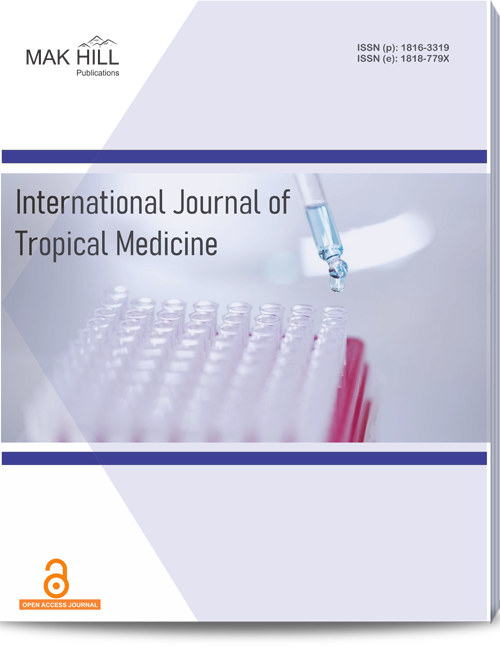
International Journal of Tropical Medicine
ISSN: Online 1818-779XISSN: Print 1816-3319
209
Views
10
Downloads
A Study of “Etiology and Prognosis of Medical Emergencies in HIV Patients” at a Tertiary Care Hospital in Southern India
Keerthi Priyanka Injeti, Gandhi Parise, Sunitha Sigamani and Sai Prasad Rao Kukka
Page: 34-38 | Received 05 Jun 2023, Accepted 10 Jun 2023, Published online: 15 Jun 2023
Full Text Reference XML File PDF File
Abstract
Developing countries are challenged by the management of medical emergencies that arise in Human Immuno deficient Virus (HIV) infected patients due to inadequate resources. Opportunistic infections, HIV-related illnesses include wasting, enteropathy, encephalopathy, side effects of anti-HIV medicine use and Immune reconstitution Inflammatory syndrome (IRIS) were cited as some of the common reasons for hospital admissions in these patients. New economical strategies are the need of the hour to overcome this challenge in developing countries. Very few studies to date are available on the etiology and prognosis of HIV patients admitted for management of medical emergencies. It is essential to identify the burden of medical emergencies in HIV infected patients. A study to observe and record the aetiology and prognosis of HIV infected patients admitted for management of their medical emergencies during their stay in hospital is presented here. A total of hundred HIV infected patients, aged 16 years and above, presenting with emergencies related to HIV/acquired immuno deficiency syndrome (AIDS) like respiratory distress, altered sensorium and convulsions or shock were included in the study. Data was collected regarding the etiology, prognosis or outcome through a combination of detailed history, clinical examination and laboratory investigations. Eighty five of the hundred patient recovered from their medical emergency while fifteen of them succumbed to it during their stay at the hospital. Survival rate among patients between 18-25 years was 100%. Patients presenting with convulsions had a high mortality rate of 27.8%. Respiratory failure followed by neurological failure in terms of altered sensorium and convulsions were the most common reasons for emergency admissions 35% and 33% respectively. Tuberculosis was the most common cause of death. Male sex, stage 4 HIV disease, tuberculosis co-infection and non-initiation of Anti retro viral therapy (ART) were associated with higher mortality rate in the present study. Cluster of differentiation (CD) 4 count had no significant effect on mortality.
How to cite this article:
Keerthi Priyanka Injeti, Gandhi Parise, Sunitha Sigamani and Sai Prasad Rao Kukka. A Study of “Etiology and Prognosis of Medical Emergencies in HIV Patients” at a Tertiary Care Hospital in Southern India.
DOI: https://doi.org/10.36478/10.59218/makijtm.2023.34.38
URL: https://www.makhillpublications.co/view-article/1816-3319/10.59218/makijtm.2023.34.38